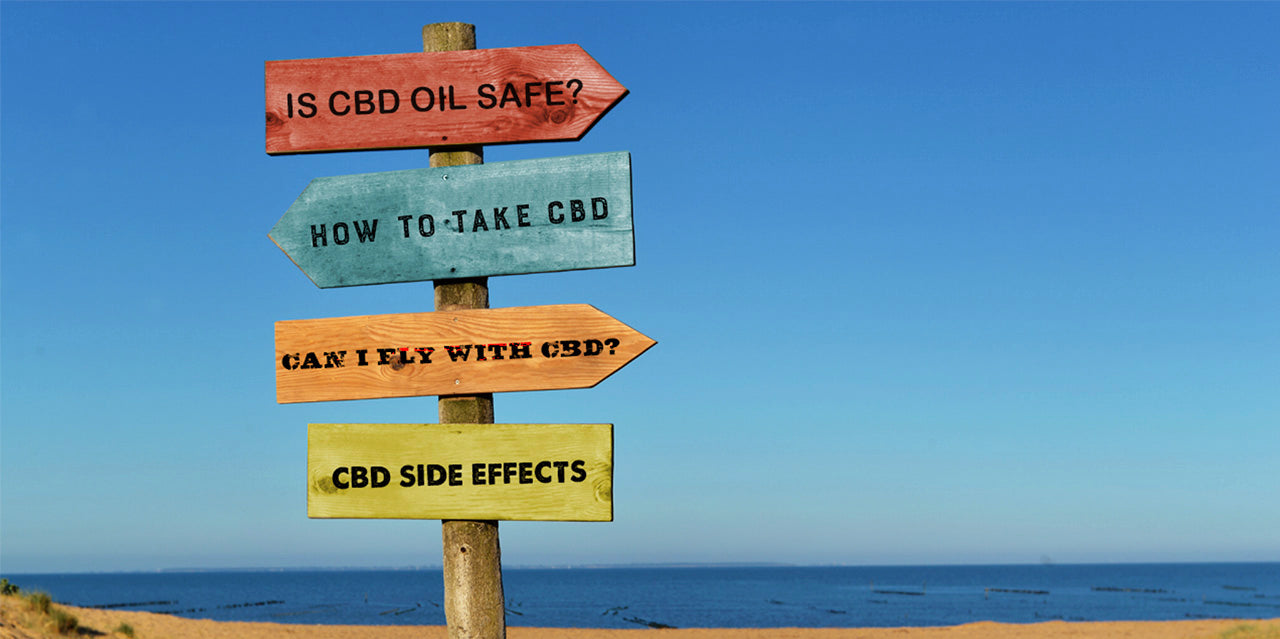CBD Oils: A Quick Reference Guide
As your’e most likely already aware. CBD oils have gained tremendous popularity for their potential health benefits. Derived from the hemp plant, CBD oil is a natural remedy with a myriad of uses. In this quick reference guide, we'll explore what CBD oil is, its uses, differences from hemp oil, and address common questions around safety, legality, and consumption.
What is CBD Oil?
CBD oil is a natural extract derived from the hemp plant. Unlike its cousin, marijuana, hemp contains low levels of THC, the psychoactive compound responsible for the "high" associated with cannabis. CBD interacts with the endocannabinoid system in the body, influencing various physiological processes.
What is CBD Oil Used For?
CBD oil is used for a variety of purposes, ranging from managing anxiety and stress to alleviating chronic pain. Research suggests it may also have potential benefits for sleep disorders, epilepsy, and even skin conditions. Its versatility makes it a sought-after remedy in the wellness community.
What is the difference between Hemp Oil and CBD Oil?
While hemp oil and CBD oil are often used interchangeably, they are distinct products. Hemp oil is derived from hemp seeds and lacks CBD. On the other hand, CBD oil is extracted from the leaves, flowers, and stalks of the hemp plant, containing cannabidiol. Always check product labels to ensure you're getting the desired compound.
What is Full Spectrum CBD Oil?
Full-spectrum CBD oil contains a wide range of cannabinoids, terpenes, and other beneficial compounds found in the hemp plant. This "entourage effect" is believed to enhance the therapeutic effects of CBD by utilizing the synergistic interactions between these components.
Broad Spectrum CBD vs. Full Spectrum CBD:
Broad-spectrum CBD contains multiple cannabinoids and terpenes but lacks THC. This option offers the potential benefits of the entourage effect without THC's psychoactive effects.
Is CBD Oil Safe?
CBD oil is generally considered safe for most people when used appropriately. However, individuals should be aware of potential side effects, including nausea and fatigue. It's crucial to consult with a healthcare professional, especially if you're taking other medications, to avoid potential interactions.
CBD Stands For:
CBD stands for cannabidiol, one of over 100 cannabinoids found in the hemp plant. Unlike THC, CBD does not produce a psychoactive effect.
Is THC Anti-Inflammatory?
THC, or tetrahydrocannabinol, has anti-inflammatory properties. However, it also induces a high, which may not be suitable for everyone. CBD, devoid of psychoactive effects, also exhibits anti-inflammatory properties, making it a preferred choice for those seeking relief without the high.
CBD Tincture and Drops:
CBD drops and tinctures are popular methods of consumption. Tinctures are liquid extracts, usually taken sublingually, while drops can be added to food or beverages. These methods provide a discreet and efficient way to incorporate CBD into your routine.
Can You Fly with CBD?
The legality of flying with CBD depends on the destination. Domestic flights within the U.S. generally permit CBD products with less than 0.3% THC. However, it's crucial to research and comply with regulations, especially when traveling internationally.
How to Take CBD Oil:
CBD oil can be taken sublingually, added to food or drinks, or applied topically. The most suitable method depends on personal preferences and the desired effects.
CBD Legality and Age Restrictions:
CBD legality varies by state. While federal law allows CBD derived from hemp, some states may have additional restrictions. The age requirement for purchasing CBD varies, but in most states, it is legal for individuals 18 and older.
CBD Oil Side Effects:
While CBD is generally well-tolerated, excessive consumption may lead to side effects such as drowsiness or digestive issues. It's crucial to start with a low dose and gradually increase while monitoring your body's response.
Does CBD Get You High?
CBD does not produce a "high" as THC does. It's non-psychoactive, making it a safe option for those seeking therapeutic benefits without altering their mental state.
How Long Does CBD Last?
The duration of CBD's effects varies based on factors like dosage and individual metabolism. Generally, effects may last anywhere from 2 to 6 hours.
Conclusion:
Navigating the world of CBD oils involves understanding its uses, differences from hemp oil, safety, and legal considerations. Whether you're seeking relief from pain, anxiety, or insomnia, CBD oil offers a natural and potentially effective solution. Remember to consult with healthcare professionals, be aware of local regulations, and start with a low dose to gauge your body's response.




